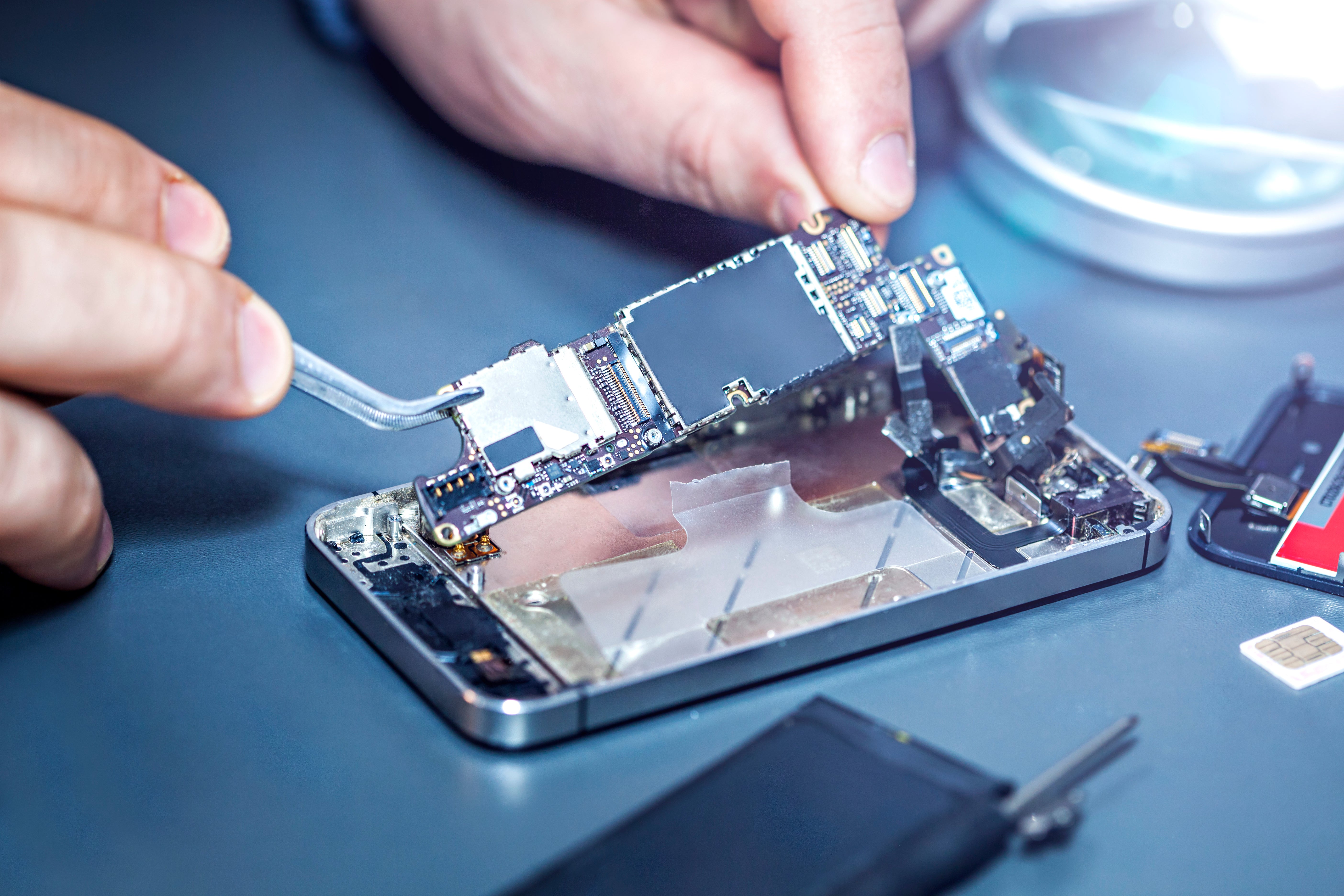Apple, Microsoft, and Google score worse than competition in new right-to-repair study
Dell, Asus, Lenovo, Acer, and HP all received higher marks for their laptops, while Motorola scored higher for its phones

Your support helps us to tell the story
From reproductive rights to climate change to Big Tech, The Independent is on the ground when the story is developing. Whether it's investigating the financials of Elon Musk's pro-Trump PAC or producing our latest documentary, 'The A Word', which shines a light on the American women fighting for reproductive rights, we know how important it is to parse out the facts from the messaging.
At such a critical moment in US history, we need reporters on the ground. Your donation allows us to keep sending journalists to speak to both sides of the story.
The Independent is trusted by Americans across the entire political spectrum. And unlike many other quality news outlets, we choose not to lock Americans out of our reporting and analysis with paywalls. We believe quality journalism should be available to everyone, paid for by those who can afford it.
Your support makes all the difference.Phones and laptops made by Apple, Microsoft, and Google are harder to repair than those of their competitors, a new report states.
Released by the US Public Research Interest Group’s Education Fund, the report creates a scorecard for the most popular phone and laptop manufacturers.
Microsoft and Apple’s laptops score a D, as did Google’s smartphones, while Apple’s iPhone’s received a failing grade. Samsung came out best of the major tech giants for their smartphones, receiving a C; however, Dell, Asus, Lenovo, Acer, and HP all received higher marks for their laptops, while Motorola scored higher for its phones.
In order to grade manufacturers, the US PIRG Education Fund partnered with iFixit to use French repair scores across 187 devices. The grades reflect the ability to get access to repair materials and a company’s record of lobbying against Right to Repair legislation.
“Dell ranked highest for the ease to disassembly, despite Lenovo recording the best overall scores in the French index. Microsoft devices are much more physically repairable than their French scores might lead you to believe”, Nathan Proctor, senior right to repair campaign director, wrote, but added that access to Microsoft’s parts and documents were limited, lowering its score.
“Apple lost the greatest number of points for their active lobbying against Right to Repair and support for other trade groups who are most visible in opposition, with Microsoft also losing points for direct lobbying.”
For smartphones, Apple and Google were marked down “due to their engagement in opposing repair-friendly legislation”, while Samsung and Motorola’s A series and Moto range, respectively, scored higher.
““We recognise that repairability is an important issue for many consumers, and we’ve been working to improve this process for our products in a way that is safe and reliable. We’ve designed our products with repairability in mind, and we continue to expand our repair services for customers”, Google said in a statement.
“This is an industry-wide effort that requires collaboration with industry partners, regulators, and state and national lawmakers to succeed. We know there is more work to be done, and we look forward to sharing more as our efforts progress.””
The Independent has reached out to the other companies for comment.
The right to repair movement – which allows users to fix their own devices – is growing across the Atlantic. A law facilitating right to repair was unanimously backed in the US in July, while the EU has made it easier for consumers to repair white goods.
In October last year, Microsoft said it would study the increasing access to parts and information needed to repair and will act on the findings by the end of 2022.
“We’ve seen shareholder resolutions become a significant tool for climate activists,” Kerry Sheehan, the US policy director at the repair guide site iFixit, said at the time. “We’re seeing it get adopted in the repair context as well in part because these are very connected.”
Other companies, such as Apple, have taken a mixed stance against the legislation. It has argued that allowing people to open up and fix their own devices would pose a danger as well as hampering its own designs.
However, it later offered a Self Service Repair program that allows customers to buy genuine Apple parts and tools, as well as the instructions required to use them, when they need to fix their own phones.
In the United Kingdom, an overwhelming majority (81 per cent) of people support an extension of the right to repair for electronics, design for repair, access to spare parts and repair documentation.
Many people threw away or replaced a broken device only because they were either unable to repair it themselves or because a professional repair was expensive or impossible.
Join our commenting forum
Join thought-provoking conversations, follow other Independent readers and see their replies
Comments